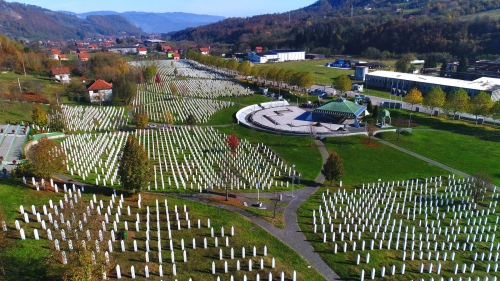Angola: A Foreseen End to a Long War. Then What?
Starting last October, news of decisive governmental victories in Angola against UNITA rebels fighters revealed a sign that the story of suffering endured by the people of Angola may be closing another tragic chapter. Moreover, the capture of Jamba, UNITA's last main stronghold in Angola by government troops, strengthened the argument that UNITA's days are over.
"UNITA's days" date back to 1975, immediately after Angola's independence from Portugal. UNITA -- a Portuguese acronym for the National Union for the Total Independence of Angola -- fought the government fiercely for 15 years, until a peace deal temporary prevailed. UNITA flourished and gained control of much of the country throughout those 15 years, thanks to abundant U.S. and South African support. Yet the Soviet and Cuban backed government (which emerged from the Popular Movement for the Liberation of Angola, MPLA) maintained its authority despite repeated heavy losses.
Luckily, or perhaps tragically, Angola had no real economic infrastructure to be ruined, for the 1961 revolution against Portugal left nothing to be destroyed. The human cost however was devastating, especially for those who longed for freedom and better living conditions. The announcement of the first democratic elections in 1992 was nothing but a signal for the war to resume, as UNITA's defeat in the election was rejected and vowed to be reversed through guerilla warfare. A UN-brokered peace protocol which took effect in 1994 revived hope that parties interested would give peace one more try. Unfortunately, last year the peace argument was proven wrong when the government attacked UNITA's bases for their repeated breach of the cease-fire agreement.
But when the sun's first rays hit Jamba, located on Angola's southern borders, this past Saturday Dec 25, different soldiers wearing differently colored army uniforms were in control of the city. At dawn, Jamba was added to several territorial gains seized by governmental forces since their victorious campaign began in early October. Although UNITA representatives based in Lisbon, Portugal denied the importance of such a victory, the victory is indeed of a great significance. Controlling Jamba in the southern Cuando Cubango province gives the Angolan government complete control over the southern borders of the country. But what makes Jamba's victory one of even greater worth is the fact that Angola has cleaned the rebel bases north of Namibia.
The Namibian government was pleased with the Angolan victory, even if that meant military advancement and clashes in its own northern territories. In fact, Namibian forces have joined Angolans in their battle aimed at dismantling UNITA's units in northern Namibia, which are used as a final defense line for the rebels. The Namibia-Angola alliance against the rebels is not the first between the two, as both are joining in a second coalition with Zimbabwe, to back the Congolese government's war against its own rebels who are supported by Rwanda and Uganda.
Angola is a county rich with natural resources such as gold and diamonds. At the same time, it has a great wealth of sad memories filled with ceaseless war and devastating famines. Angola is indeed ready to treat the bleeding wounds of a bloody past and present shaped and fed by colonialism and The Cold War. Yet Angola, crippled by the war, is in great need for internal reconciliation and regional solidarity. Hopefully the Namibian-Angolan alliance will prove to be a successful experience where regional cohesion can lead to quicker and comprehensive results. Yet Angolans must remain wary of the ghost of a new war which can be manipulated by foreign powers with vested interests or by Angolan parties' disputes. If the war was truthfully fought for the sake of the people's welfare, the expected end of "UNITA's day's" should signal the beginning of the "people's days". The future of Angola should be a time to start cultivating the fruits of many years of suffering, torment and hunger.

















